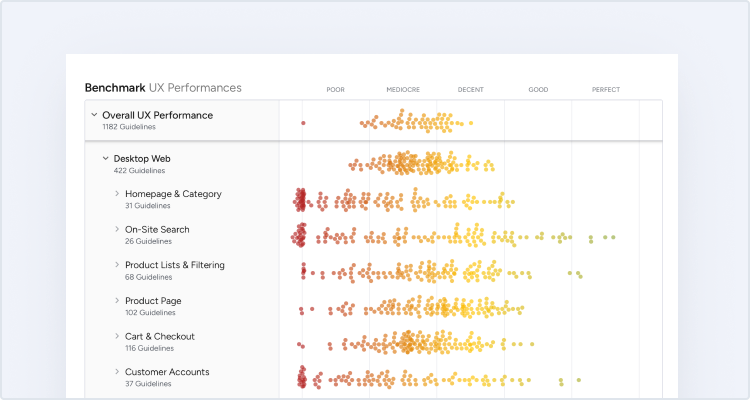‘Sports Gear & Equipment’ Ecommerce UX Audit
What are the top 40 UX improvements for your Sports Gear & Equipment site? How does your UX performance compare to adidas, Cabela’s, SportChek, Nike, Evo, REI, and Hibbett?

Based on the findings from Baymard Institute’s 150,000+ hours of User Experience (UX) research, Baymard will conduct a UX audit of your ‘Sports Gear & Equipment’ ecommerce site.
The in-depth Sports Gear & Equipment UX audit will be based on 500 weighted UX parameters uncovered during our large-scale UX testing of Sports Gear & Equipment websites. The UX audit will provide you with:
- a detailed 120+ page audit report outlining 40 prioritized and research-backed user experience improvements for your Sports Gear & Equipment site,
- provide best practice implementation examples and inspiration from other Sports Gear & Equipment sites for each of the 40 identified UX improvements to your site,
- a detailed, unbiased UX performance analysis across the 500 UX parameters to document your current state and identify the best areas to improve,
- compare your site’s UX performance directly to the performance of other Sports Gear & Equipment ecommerce sites, such as adidas, Cabela's, Dick’s Sporting Goods, SportChek, Nike, Evo, Backcountry, Academy, Bass Pro Shop, REI, Hibbett, and Sports Direct.
Learn more about our Sports Gear & Equipment UX audit analysis, deliverables, and costs in the 5 sections below:

“Intelligent, consumer-focused insights that are clear and actionable. The team in the room really loved the way the Baymard Institute highlighted the optimizations in the various user experience elements (copy, layout, design, calls-to-action…), from the perspective of consumer struggles. Baymard’s Usability research really complements our other existing research tools.”
What’s Included in a Sports Gear & Equipment Ecommerce UX audit?
A full UX analysis and assessment of your desktop and mobile websites — conducted by lead UX researchers at Baymard Institute, utilizing Baymard’s more than 150,000+ hours of large-scale UX research.
Detailed UX scorecards with a total of 500 UX performance scoring parameters, used for direct UX performance comparison against Sports Gear & Equipment websites. In addition, you will also get a UX comparison to 257 leading US and European ecommerce sites, to benchmark how your site stacks up to general user expectations.
The auditors will write a detailed 120+ page report with 40 suggestions for UX improvement. Each suggestion includes a description of the identified user experience issue along with a proposed solution and 2–4 best practice examples from other Sports Gear & Equipment sites, and occasionally examples outside your industry for cross-industry inspiration.
A 2-hour video conference where we go over the audit results with you and your team, to discuss the findings and suggestions for improvements.
3 follow-up calls with your UX auditor after delivering the UX audit findings. For feedback on any redesigns you create, a light review of prototypes, questions, etc.
Your whole organization gets 4 months of complimentary access to Baymard Premium with full access to Baymard’s 150,000+ hours of UX research findings, etc.
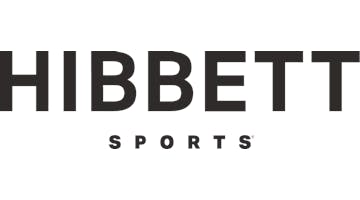
“This has been fantastic: really good recommendations, really comprehensive.”
UX Audit Focus
The audit will cover the following areas of your online user experience:
Homepage — The homepage structure, design, carousels, personalization, and promotions.
Category Taxonomy — The overall ecommerce category structure and taxonomy, includes the common issue of “over-categorization”, information architecture, catalog breadth, category redundancy, overly deep or shallow categories, industry-specific naming, etc.
Main Navigation — The main ecommerce navigation design, mega drop-down menus, product navigation and its visual hierarchy, courtesy non-product navigation, etc.
Intermediary Category Pages — How deep in the site hierarchy “Intermediary Category” pages are used (vs. using a product listing page), how the category pages are structured and what content they contain, incl. inspirational paths, featured products, and curated content, etc.
Site-Wide Layout — Site-wide layouts, footers, newsletter dialogs, ad positioning, and return policy links, etc.
Query Types — The level of compliance with 12 different overarching types of search queries that users make on ecommerce sites, all vital for your search engine to support (Exact, Product Type, Feature, Thematic, Relational, Compatibility, Symbol, Subjective, Symptom, Implicit, Non-Product, and Natural Language). How and what product data is actually searched.
Search Form & Logic — The design and behavior of the search field itself, query persistence, manual and automatic search scope selection, special characters, etc.
Autocomplete — How the autocomplete feature (“predictive search”) should be designed, the types of suggestions it should make, keyboard behavior support, suggesting scopes and products, etc.
Results Logic & Guidance — How to guide users toward better paths on the results page, including suggesting alternate queries, scopes, “No results” pages, misspellings, etc.
Results Layout — The layout and features of the search results page, such as dynamic list layouts, the search results information, search snippets, pagination, etc.
Results Filtering & Sorting — Filtering and sorting of search results, including essential filtering types, faceted search, the design and logic for long lists of filters, filter naming, dynamic sorting, etc.
List Layout — The design and features of the overall layout of the product list, includes “list” vs. “grid” layouts, product data consistency, post-processing vendor-supplied data, “responsive upscaling” of product lists, etc.
Loading Products — The loading schema for new items loaded into the product list, number of products displayed by default, etc.
List Items: What Information to Include — The type and amount of product attributes to include in each list item, product variations in list items, user ratings averages in list items, etc.
List Items: User Interface — The styling and display of the included information such a price, product specifications, variations, units, etc.
List Items: Product Thumbnails — The type of product thumbnails in each list item, what they depict, their size, hover-enabled thumbnails, showing packaging, etc.
List Items: Hover & Hit Areas — The list item’s click behavior, hover effect synchronization, “quick view” features, dynamic amount of content on hover, etc.
List Items: Personalization — Context-aware thumbnails, personalized list item and product attributes, highlighting of items, etc.
Filtering: Available Filters — The type, amount, and specificity of filters users need, incl. thematic filters, product-specific filters, compatibility filters, symptom filters, product status filters, gifting filters, user-defined filters, price filters, etc.
Filtering: Scope & Logic — Filtering logic, scope, and naming schemas, such as over-categorization, mutually exclusive filtering values and non-exclusive values (“AND” “OR” logics), filtering tooltips, filter names, filter value consistency, dynamically renaming filters, etc.
Filtering Interface & Layout — Filtering type’s and filtering value’s styling, placement, filter truncation, incl. handling filtering values with 0 matches, filter value checkbox and link styling, the display sequence for filtering values, slider interfaces, etc.
Filtering: Applying & Applied Filters — “Apply” buttons and live updating as filters are applied, the position and styling for applied filtering values, browser history, filter and sorting persistence, etc.
Sorting — The default sort type, diversity in sorting logic, the sorting interface and scope, alphabetical sorting, category-specific sort types, sorting directions, sorting naming, the scope of the sorting tool, labeling of the sorting interface, dead-end sorting options, logic for customer rating sorting, etc.
Product Page Layouts — “Horizontal Tabs”, “Sticky TOCs”, “Collapsed Sections”, “One Long Page”, etc.
Product Images — How users inspect product images, the 7 different image types ecommerce sites need, number of images, etc.
Image Gallery User Interface — Image gallery design, image navigation, methods of zoom, carousels, overlays, default image and size, etc.
The “Buy” Section — Design and position of elements such as “Add to Cart” button, prices and discounts, quantity field, etc.
Shipping, Returns, & Gifting — Shipping and returns information at the product page, “Free Shipping” tiers, and “Find in Store” features.
Product Variations — Selecting color and size variations, content across variations, product customizations and personalizations.
Product Description — Product information and descriptions, the type of content needed, text styling, sub-titles, product headlines, etc.
Product Specifications Sheet — Spec sheet layout, specs in tables vs. product descriptions, help features, post-processing of vendor data, etc.
User Reviews — User reviews, the review submission form, review filtering, sorting and navigation, rating distribution summaries, etc.
Auxiliary Content — Q&A/FAQs, social media tools, and expert-generated content.
Cross-Sells & Cross-Navigation — Cross-sells design, placement, and logic, cross-navigation elements, “Recently Viewed Products”, etc.
Shopping Cart & “Added to Cart” Behavior — Shopping cart design, quantity, and save features, as well as the page-response when users add products to the cart (drop-down cart, etc.)
Account Selection & Creation — Account selection designs and communication, guest checkout, “Delayed Account Creation”, social media accounts, password rules, etc.
Customer & Address Information — Privacy concerns, shipping addresses, billing addresses, international addresses, phone fields, address auto-detection techniques, etc.
Shipping & Store Pickup — Shipping interface design and information hierarchy, shipping descriptions, order cut-off times, and “Free Shipping” tiers, along with omni-channel features such as Store Pickup, Store Availability, and Ship to Store.
Payment Flow & Methods (includes Third-Party) — The payment methods interface, how to integrate and display third-party payment options, gift card redemption flows, international currencies, coupon codes, etc.
Credit Card Form — The credit card field design and its validation logic and formatting, along with the expiration date, security code, and cardholder name inputs, field sequence, card icons, and card type selection.
Order Review — Review step design, “Place Order” button placement, and necessary review data, along with its editing flow.
Order Confirmation & E-Mail (to the extent it’s possible to access this) — The information and actions needed on the order confirmation page, along with the order confirmation e-mail.
Checkout Page Design — Checkout process steps, “Enclosed Checkout” designs, order summary sidebars, and how to design and position the cart link in the site-wide header.
User Attention & Interactions — Load indicators, feedback on user actions, the use of overlays, feedback requests, introduction of site-specific features, and embedded content from third-parties.
Cross-Sells — Active vs. passive cross-selling, adapting cross-sells to user context, and pitfalls of specific placements and wording.
Form Design & Features — How to design and position the primary button, “Apply” buttons, minimizing form intimidation, multi-column layouts, tabbing flows, CAPTCHAs, back-button and enter-keystroke behavior.
Validation Errors & Data Persistence — How to design and position error messages, how to word them, and persisting data in non-secure and secure form fields, along with inline validation.
Address Validators — When address validations are necessary, “Force-Proceeding” through address validators, along with address validator design and logic.
Field Labels & Microcopy — Marking optional and required fields, field label position, tooltips, and optimizing microcopy and descriptions.
Field Design & Features — How to match the type of interface with the input type, drop-downs and radio button implementations, input masks and character restrictions, custom designed input fields, etc.
Default Values & Autocompletion — Intelligent form features, including inferred selections, pre-fills, auto-fills, and personalization of the checkout flow.
‘My Account’ Sign-In — Account sign in, including password reset and account lockouts, “Soft” sign in, automatic sign out, and where users should be sent after signing in.
‘My Account’ Drop-Down — Placement of the “My Account” drop-down menu, account features to include, how the “My Account” drop-down should be structured and styled, personalization, and what “My Account” drop-down implementations should be avoided.
‘My Account’ Dashboard — Providing paths to all ‘My Account’ features, highlighting recent orders, limiting ads, and using icons; dashboard designs that use a sidebar or “Cards“ for navigation.
‘My Account’ Stored Addresses, Cards, and Newsletters — Credit card updating flow, default addresses, editing vs. adding a new address, newsletter frequency and “unsubscribe“, confirmations, and ‘Apply’ buttons.
Mobile Basics — Content and structure of mobile site vs. desktop site, size and spacing of hit areas, multiple hit-areas within the same visual element, font-sizes, landscape mode, bugs and quirks vulnerable to the mobile platform, auto-zoom, etc.
Mobile Site Homepage & Main Navigation — Main navigation design and logic, double-hit area issues, homepage structure and design, auto-rotating carousels, etc.
Mobile Search — User’s crossover from category navigation to search, search scopes, misspellings and synonyms, search query support, “No results” pages, Faceted Search filters, etc.
Mobile Product Lists — List item size, product thumbnail size relative to product type, amount of product attributes in list items, hit areas within the product list, separation of list items, pagination vs. load more vs. endless scrolling, visual indicators, product variations, list item interactions on a touch screen, etc.
Mobile Filtering & Sorting — Styling and position of both “filter” and “Sort” options, sort types, “apply” buttons vs. auto-applying filtering values, the display of applied filters, information scent, product status, filtering interface, etc.
Mobile Cross-Navigation & Compatibility — Interlinking of compatibility-dependent products, cross-sells, list item consistency, etc.
Mobile Product Page Layouts — Product page structure, sub–product pages, collapsed product page sections, user reviews, “add to cart” button placement, “Store Pickup”, etc.
Mobile Product Images — Product image size, product image zoom levels, image ambiguity, touch gestures in the image gallery, etc.
Mobile Product Descriptions, Specs, & Compatibility — Division of product info between description and spec list, styling of product description, amount and level of specs included, product compatibility information and relationships, etc.
Mobile Shopping Cart — Cost estimates, number and placement of “checkout” buttons, saving mobile carts, picking up mobile carts on desktop devices, etc.
Mobile Checkout Steps — Account selection and guest checkout, shipping and billing addresses, shipping methods, “Store Pickup”, payment, order review, linear checkout flows, mobile process steps, etc.
Mobile Checkout UX — Optional vs. required fields, minimizing number of fields, form field label placement in smartphone portrait and landscape modes, inline labels, floating labels, grouping checkout info for mobile overview, field context, location detection, touch keyboard auto-correct, optimized keyboards, auto-capitalization, etc.
Custom Sports Gear & Equipment Competitors
In addition to auditing your site UX and comparing it to large Sports Gear & Equipment ecommerce sites in our benchmark database (adidas, Cabela's, Dick’s Sporting Goods, SportChek, Nike, Evo, Backcountry, Academy, Bass Pro Shop, REI, Hibbett, and Sports Direct), we can also expand the project scope to include a custom competitive audit against any local or direct Sports Gear & Equipment competitor(s) you’d like. This is available for sites in most countries and languages.

“This was indeed very helpful guidance and a very well-documented roadmap for us to fix, validate, organize, collectively understand and continually improve our ecommerce foundation.”
What Are Audits For?
Most commonly, our UX audit services are used by:
- Sites that would like to benchmark their UX performance to see how they stack up against major competitors and “State of the Art” sites, to know where resources are best spent on further UX improvements.
- Sites that would like inspiration and verification of their new redesign. For example, before spending resources on the final production code — auditing prototype designs are cheaper than re-coding.
- Optimized sites that need a pair of external and unbiased eyes to identify the last tweaks and improvements.
- Sites that would like to track their UX performance year-over-year, to measure and document UX progress towards stakeholders and over time.
Return on Investment
Even the smallest improvement in conversion rate for any site with significant sales will lead to a notable return on investment. For example, an improvement from 3.1% to 3.6% in conversion rate for a site with $50,000,000 annual sales will yield $8,060,000 extra sales every year.

“I just wanted to take a minute to thank you for the amazing work on this audit. You should know that this has been very well received internally and there’s a lot of excitement around adopting the ideas you have shared.”
How Will the Audit Be Delivered?
What Will It Cost?
A full-site Sports Gear & Equipment desktop and mobile UX audit across all 6 audit focus areas costs $17,500 (USD).

A ‘Sports Gear & Equipment Full-Site UX audit’ includes:
A full UX review and analysis by Baymard’s team of UX researchers of both your desktop and mobile websites.
Detailed UX performance scorecards with a total of 500 review parameters, and with performance comparison against leading Sports Gear & Equipment sites, along with a general comparison to 257 leading US, European, and International ecommerce sites.
A 120+ page audit report with 40 prioritized suggestions for UX improvements. Each explain the identified UX issue, the suggested change, and show 2–4 best practice implementation examples from other Sports Gear & Equipment sites and leading ecommerce sites.
A 2-hour video conference with you and your team to discuss the audit results.
3 follow-up calls with your UX auditor. Useful for follow-up questions or feedback on your redesigns or prototypes.
4 months of complimentary access to a Baymard Premium ‘Specialty’ plan with full access to Baymard’s 150,000+ hours of UX research findings.
Reach out below to discuss your needs or request a UX audit of your Sports Gear & Equipment site. (PS client audits are strictly confidential and will not be included in Baymard’s public UX benchmark database).

Talk to UX auditor Laura about your goals and discuss Baymard’s UX research methodology.
UX Audit Price
$17,500
per audit
Refund Policy: In the event that we’re unable to provide 40 suggestions for improvements we’ll still complete the audit and leave it up to you if you want a refund.
Lead time: A typical full site audit takes around 17-25 work days - depending on time of year, project scope and auditor availability.
Confidential: All client-specific audits and UX scorecards are strictly confidential; they are not included in Baymard’s public benchmark databases or shared with anyone else (NDA is possible).
Unbiased: As Baymard does not offer any kind of design or development services or sell ecommerce technology, the UX audit will always be a completely unbiased analysis of your site, and not an indirect “sales pitch” for other services. At Baymard our specialization is the UX audit.
What Our Clients Say About the UX Audit
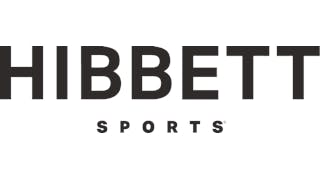
“This has been fantastic: really good recommendations, really comprehensive.”
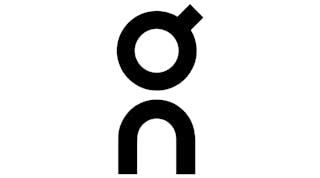
“Very thorough and professional UX review of our website, based on an extensive amount of previous UX research insights within the industry, and specifically targeted to our needs. We received both critical and, most importantly, constructive feedback, along with actionable, prioritized suggestions and best-practice examples. This will allow us to address the areas of improvement and significantly help ameliorate the experience users have on our website, which in turn is expected to drive conversion rates and reduce the number of customer service requests. We can highly recommend Baymard's UX audit.”

“Let me say that it was exceptionally well done, and we are super excited to implement every one of the recommendations there. Everything you said has usually been a case of discussion in the past, but having them recommended in a deck like this will allow us to move forward.”

“I was able to bring these designed solutions home with me and kickoff multiple optimization projects that I am confident will affect the site in a positive way, both in usability and conversion.”
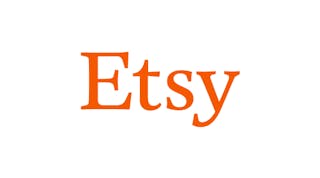
“Thank you. This was an excellent piece of work: professional, thorough, and actionable for the team. We’re very happy with the work Baymard has done for us.”
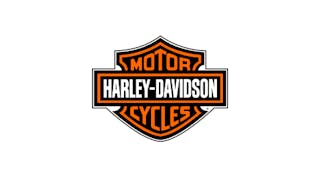
“We found the audits extremely helpful and validated a number of changes we have been wanting to make or are in the process of making, so thank again for all the great insights.”
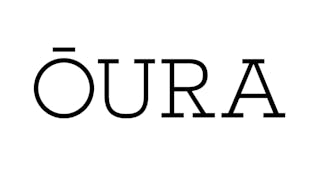
“First off, thank you. This was the most engrossed I’ve ever been in a 2-hour meeting. This [audit presentation] was incredibly insightful and very helpful. Many, many thanks.”

“This was indeed very helpful guidance and a very well-documented roadmap for us to fix, validate, organize, collectively understand and continually improve our ecommerce foundation.”
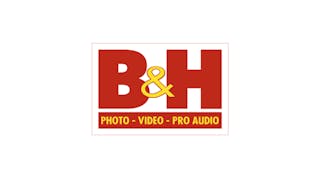
“I can confirm that the list was fully implemented. Every time we put up a change we either A/B test or we watch it very closely to determine that it’s doing better and not the opposite. So I can confirm that these fixes have improved our checkout. Thanks for everything.”
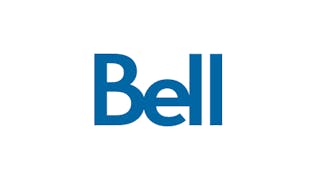
“Thank you for the UX audit presentation, it was FANTASTIC. People here are quite pleased and amazed by the amount of work that was put into this.”

“The Baymard team has been a delight to work with on the JohnLewis digital platform audit. They responded to the brief very well, have been very accessible for ongoing clarification and queries and Rebecca was excellent in the recent team share, articulately presenting findings in an engaging walk-through with the wider team which will really support driving engagement and a robust response. Many thanks for all the effort and focus folks.”

“Intelligent, consumer-focused insights that are clear and actionable. The team in the room really loved the way the Baymard Institute highlighted the optimizations in the various user experience elements (copy, layout, design, calls-to-action…), from the perspective of consumer struggles. Baymard’s Usability research really complements our other existing research tools.”

“Thank you very much for the 7 usability audits of our country-specific sites. The audits have provided us with specific and actionable advice, allowed us to prioritize development resources, and enabled us to compare UX performance between the 7 different country-specific sites, and against State of the Art implementations. The audit itself is done really professionally, and the recommendations contain actionable and insightful information.”

“This is awesome so far. Everyone wants to know what's going on – you just got everyone's attention here. Everything that you've called out is definitely eye-opening for us over here.”

“We’ve received some awesome feedback from our Merchant Success team as well as our merchants about all of the UX Audits we’ve had thus far with Baymard. Thank you so much to you and your team for all of your hard work. The pilot with Baymard has been going fantastic and I’m really excited with all that we’re learning! You have an amazing platform, team and super helpful data base for us to work with.”
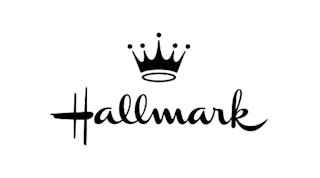
“The walkthrough today was great. The report was very, very well done and loaded with great opportunities for us to improve our business. I wanted to again express my appreciation for working with us on such a condensed time frame last month. You and your team have been amazing partners to us and we very much appreciate the work, expertise and partnership.”
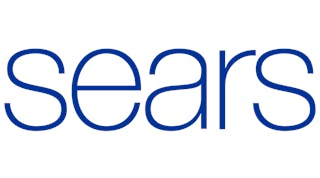
“Baymard produces some of the most relevant and actionable user experience research available. They really understand the needs of UX and Product Management professionals, and their deep experience in the eCommerce field allows them to offer sophisticated, nuanced insights.”
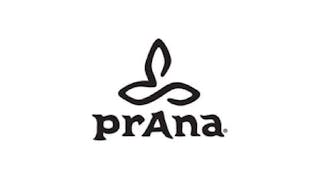
“Wanted to thank you again for the checkout audit and walking us through the process. It was super helpful and we can’t wait to apply the changes to our checkout for a better user experience.”
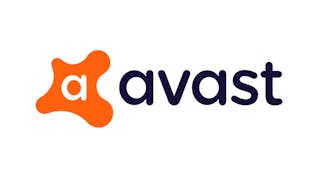
“We have recently tested some of your recommendations for the Avast checkout and got some great wins!”

“I’m reviewing the report this morning and I am delighted. The recommendations are detailed and our resulting actions are clear. I’m excited to share this with the rest of the team!”
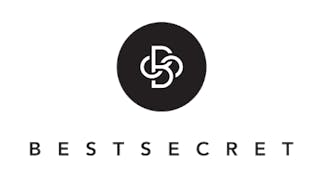
“We are very excited to finally proceed with the UX improvements, and I truly believe your audit report will be super helpful to put us ahead of the wave. If you ever need a reference, please do not hesitate to share my contact.”

“I just wanted to take a minute to thank you for the amazing work on this audit. You should know that this has been very well received internally and there’s a lot of excitement around adopting the ideas you have shared.”

“This was…mind-blowing. We’ve been having conversations on the side as you’ve been presenting the audit findings. There’s so much to do!”
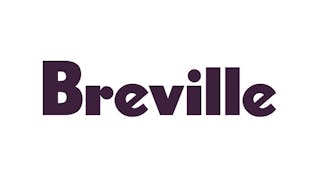
“Thanks for everything. The audit was extremely useful, I think we have gained valuable insight.”

“Thanks again for the great work on our checkout project. Our whole group found it incredibly insightful. We’re applying the suggestions you provided to our new checkout design which launches at the end of the month! One of my colleagues was also interested in your group’s competitive expertise with regard to responsive web and native apps.”
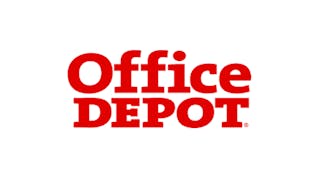
“Baymard has been a great resource in helping us improve the customer experience. We are continually applying these best practices to our sites.”

“Excellent tool – looking forward to using it with our other sites and prototypes as they’re developed.”
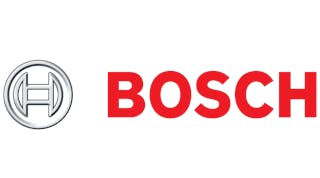
“Thank you very much for your time and the presentation. It was super useful, comprehensive and most importantly very concrete, so that we know exactly what to do next. We will definitely recommend you to other divisions within Bosch.”
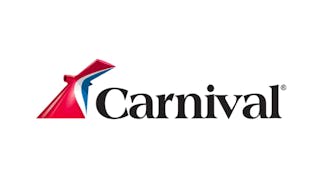
“We like what we are reviewing from the audit - great analysis and feedback.”
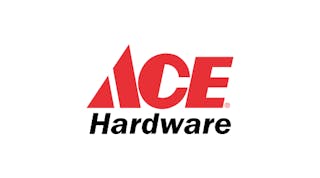
“A big thanks to you and the Baymard team for such an informative and valuable session. The Ace Hardware team truly appreciated the Baymard teams feedback, diligence and the overall presentation. We are looking forward to using the excellent information provided to improve the acehardware.com user journey.”
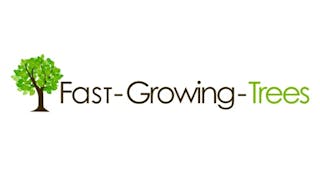
“We implemented this [1 of the 15 audit suggestions] and since then we’ve had a 20% increase in warranties added and a pretty healthy average order increase because of that. That was a great suggestion, it hit our bottom line immediately.”
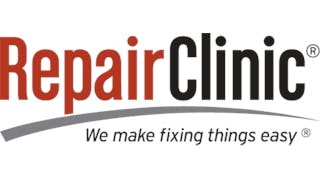
“Within a very short time Baymard Institute provided 15 clear, useful improvement suggestions for our checkout process. We intend to implement all of them. It’s easy to find companies that offer website improvement suggestions. But, most companies don’t do their homework and don’t provide specific examples of how best to make the improvements. With Baymard Institute, the checkout process suggestions they made were intuitive, specific, and actionable. I highly recommend their audit service.”

“Baymard has helped so much: UX was a brand new role at my company when I was hired. I was researching, planning, and designing UX & UI for 5 different products, all by myself. After showing real-world, bottom-line results from a UX centered approach to our products, we have expanded our UX team and greatly improved our UX-to-product process. Baymard’s research database was a critical component to my (and my company’s) success. Thank you!”
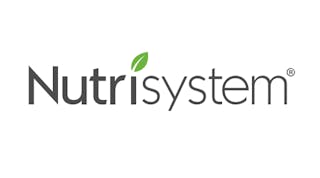
“The recommendations in our audit were awesome - well prioritized, actionable and helped us focus on what to optimize. This audit, along with the ecommerce database access, are my go-to resources for thorough, insightful information. Thank you!”
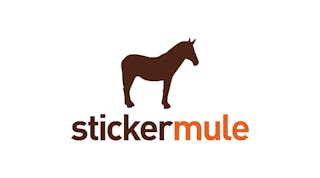
“Wow, this is great! Just reviewed it with the team. It’s a huge help and we’re excited to fix these issues.”
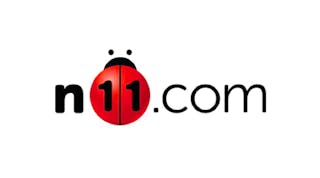
“We have worked with a number of third party companies before on various projects/audits, and I can certainly say that working with Baymard was not only a pleasure; but you delivered on time; to the level of depth we wanted; addressing important issues; and answering all our questions; and you did all this for a great price. A big THANK YOU on behalf of N11.”

“A great presentation, and the results were very eye-opening. It’s really helpful.”
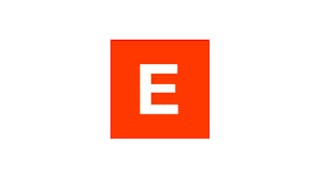
“Given the tricky science of conversion rate optimization, it is great to know that you are dealing with professionals whose advice is based on solid research. It was a pleasure collaborating with the Baymard team.”
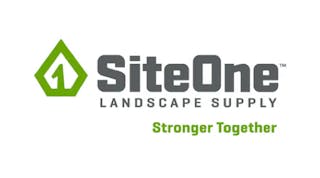
“Baymard recently did a UX audit of our new e-commerce Website. We were very pleased with the results. The report and live review of the findings validated our approach to user experience, and also, we learned a lot about best practices for e-commerce UX. We believe Baymard’s work will help us increase revenue and user satisfaction.”
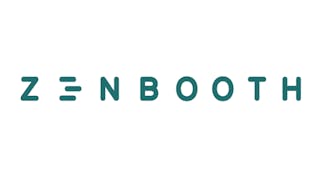
“I just wanted to thank you guys for all of the time that you’ve put into this, and for a great presentation. We don’t have anyone at the company that has formal UX/UI experience, so being able to tap into Baymard’s resources/expertise is an immediate win for us. Some of the things you pointed out, we’ve already identified as areas for improvement (which was validating), but a lot of the recommendations are things that we hadn’t identified and are for the most part immediately actionable.”

“I’m very impressed! Not about our site’s performance, quite the opposite, but about your work. Very detailed and packed with great and tangible advice. This was exactly what I dreamt about, but sometimes you just have to be careful dreaming.”
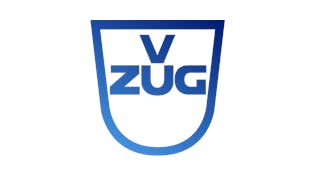
“Thanks for this audit and your good work. This was exactly what I was aiming for. Also thanks for the very, very professional presentation, and answering all our countless questions. Very good work.”

“[Wanted to] say thanks, because we had a meeting yesterday everyone’s really excited about this. It’s really got everyone motivated and interested in what we’re going to tackle next so it’s been really invaluable, I think.”
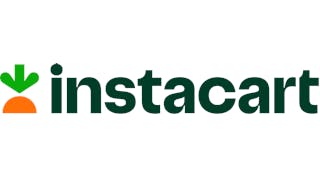
“Thank you, this was really insightful!”

“I found the UX audit a very comprehensive evaluation, with clear reports and actionable recommendations. Baymard's commitment to excellence in user experience shines through its thorough approach!”

“This UX audit has been very helpful, not just for our design and product teams, but even for the UX research team, because we can reference back to the audit, either in the design of a user research session or when we analyze findings. Thank you very much; this has been incredibly valuable.”
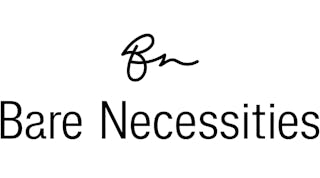
“I thought it was great. A lot of it is things that we've either known or called out to each other in the past, but the important part is putting a weight on it, or a score on it. To then actually have a true impact of how much each issue is hurting. It's nice to see some implementations that are good, too. Thank you so much.”

“Fantastic delivery and very clear breakdown of findings.”

“The Baymard UX audit has been a revelation for our organisation and will likely become a vital tool in our process moving forward.”
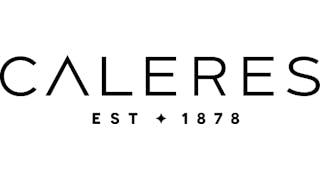
“Clear, concise, actionable, data-driven insights!”

“Working with Baymard for our UX audit was an exceptional experience from start to finish. Their attention to detail, depth of analysis, and clear communication throughout the process truly exceeded our expectations. The insights they provided were not only actionable but profoundly insightful. I highly recommend Baymard for their expertise, professionalism, and commitment to elevating user experiences.”

“Baymard's audit services give us a detailed view of usability improvements across our entire site. This is so much more comprehensive than running individual usability studies.”
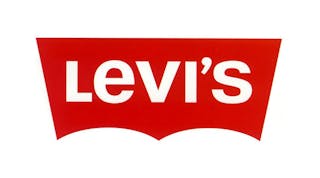
“Having Baymard is like having access to a magical UX super power. I can't believe how helpful and easy to use it is, given the vast array of tools and information they provide!”
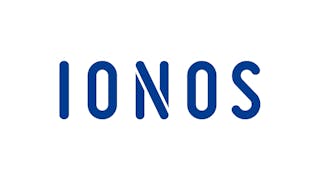
“The audit opened our eyes once again, as we are often blind to our own operations. The comparison with competitors' best practices was particularly helpful.”

“An eye opener. This UX audit helped validate assumptions we had regarding our site but also provided visibility on issues we overlooked. Recommendations were in depth and provided ways for improvements.”

“Exceptional audit with actionable points and excellent examples. ”

“This UX audit is helping us to compare ourselves against the industry benchmark and prioritize UX improvements accordingly. All with an insight-driven mindset and not as an agency that would sell you hours after this!”

“Our UX Auditor was very engaged and responsive throughout the entire 2-week audit process. Delivered quicker than expected. We feel confident that the insights will be constructive.”

“Very insightful and interesting. Marilyn was great and explained the audit really clearly.”

“One of the most valuable audits we have ever had with loads of actionable advice that will more than pay for itself in the short run.”
